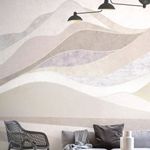
Research is practiced widely in many different fields, such as science and technology, education, engineering, architecture, as well as interior design. Every design created is actually a hypothesis and an experiment. Interior design aims at solving problems by practically intervening in various ways. Hypothesis and intervention are both foundation for research. Although many designers find it hard to transform ideas into something tangible, research is still an integral part in the construction and design industry. Design process, is basically intuitive and relies on implied knowledge rather than logical thinking.
All about research and its importance
Research is a work conducted on a systematic basis so that there will be an increase in knowledge and to be able to use those knowledge to create new applications. Research is used to establish facts, check the validity of previous reports, solve new or existing problems, support existing theories and/or develop new theories. As a principle, it follow the tenets of the scientific method: 1. identify the problem; 2. data gathering; 3. formulate hypothesis; 4. testing of hypothesis/experimentation; 5. formulate conclusion.
Research projects can be the bench mark to further develop knowledge and applications on a topic. Different fields have their own approaches in conducting research projects. In addition to that, there are also different kinds of research that various fields use: scientific research, historical research, and artistic research. All of which aim to prove previous studies and to further enhance their relevance to the respective field of study.
Significance of research in interior design
Nowadays, clients are more proactive in being involved in the design process of their home interior. Most clients demand justifications for the design created by designers. They want their designers to be fully knowledgeable in what they are doing. Clients are also smarter nowadays wherein, the designer or architect is not paid in full until after evaluating and assessing the project. Do not expect that the needs of clients are the same 20 years ago. At present, clients look first at the experience, skills and knowledge of the designer with their type of project. In addition to these, the ability of the designer to complete the project at a specified time period, budget and others are also evaluated before hiring the designer of architect.
Therefore, research is very important to upgrade the knowledge and skills of the designers as well as their firm in the various projects that they may accept. Research immensely helps in the learning of the designers in their chosen profession. Learning is a continuous process and that in the design industry, project outcomes need to be research based so that the output is of good quality and according to the specifications of the client.
Interior design research topics
Here are some examples of research topics that can be studied by interior designers to improve their knowledge and skills in their chosen profession:
• The effect of hospital interior design (color palette of walls, wallpapers, furniture, etc) to the well being of patients.
• Relevance of green buildings in the productivity of workers.
• Why are suburban communities less interested in developing sustainable building strategies than urban and rural ones?
• The importance of involving intern students in interior design projects.
• The effects of different color palettes to the productivity of workers.
Although, just by looking at these sample topics seems quite easy, further examining them will clearly tell you that they require research. Many think that by surfing the internet, answers can be easily obtained for interior design questions. Internet may provide answers but they may not be suitable to various factors related to the topics. Conducting research will provide significant answers that are mostly appropriate to the topic. Research can provide information on how to go through with the project so that the outcome will be of good quality.
 Australia
Australia
 Austria
Austria
 Belgium (Dutch)
Belgium (Dutch)
 Canada (English)
Canada (English)
 Denmark
Denmark
 Estonia
Estonia
 Finland
Finland
 France
France
 Germany
Germany
 Ireland
Ireland
 Italy
Italy
 Luxembourg (French)
Luxembourg (French)
 Netherlands
Netherlands
 New Zealand
New Zealand
 Norway
Norway
 Poland
Poland
 Portugal
Portugal
 Romania
Romania
 Singapore
Singapore
 Spain
Spain
 Sweden
Sweden
 Switzerland (French)
Switzerland (French)
 USA
USA
 United Kingdom
United Kingdom
 Other Countries
Other Countries




